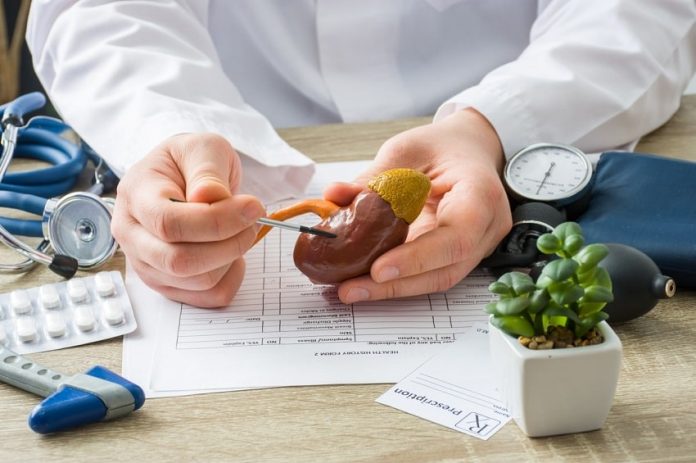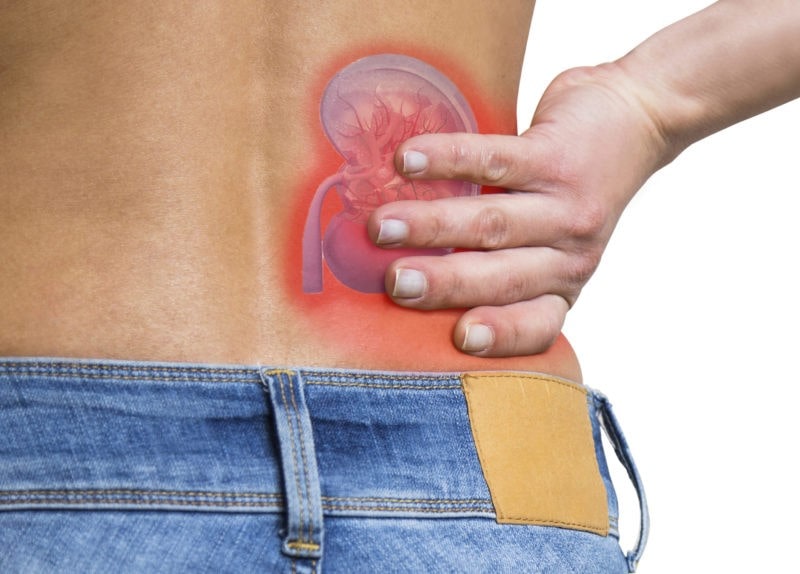Urine contains a lot of dissolved minerals, including salts. If your urine contains high quantities of the said salts and minerals, you can develop kidney stones. They can start tiny but can increase in size and fill the kidney’s hollow structures.
Some kidney stones remain inside the kidney without causing problems. But sometimes, it can journey downwards through the ureter. The ureter is the tube in-between the bladder and the kidneys.
Once the stones get to the bladder, they are ejected from the body through urine. But in the case where they become embedded inside the ureter, they obstruct the flow of urine from the affected kidney and result in pains. Learn more about the urinary system that how it works and how urine is formed.
How the Kidney Functions
Kidneys are about the size of a fist, and they are responsible for the body’s chemical levels and fluids. Most people possess a pair of kidneys on both sides, just behind the intestines, pancreas, stomach, and liver. Healthy kidneys cleanse waste in your blood and expel it through the urine.
The urinary tract comprises the ureters, bladder, and kidneys. It produces, stores, and transports urine. The kidneys produce urine from body waste and water. Subsequently, the urine journey down both ureters and is stored inside the bladder. It then leaves the body via the urethra.
Stones are formed inside the kidney, but some kidney stones travel from inside the kidney to the ureter. If a kidney stone exits, it lodges inside the ureter. This is known as a ureteral stone.
Causes of Kidney Stone
The causes of kidney stones include:
1) Diet
A major cause of stones is elevated calcium levels in urine. This might be attributed to how your body processes calcium. Decreasing your calcium intake hardly stops kidney stones. The reduction of salt in your food decreases urine calcium.
2) Obesity
This might change the acidity of the urine, allowing kidney stones to appear.
3) Bowel Conditions
Some bowel conditions like ulcerative colitis and Crohn’s disease or a gastric bypass increase the risk of kidney stones. Your body might absorb immoderate oxalate via the intestines, and this would result in increased oxalate in the urine. Increased levels of oxalate in the urine and a low urine volume can both be responsible for the formation of stones.
4) Medical Conditions
The unusual growth of some parathyroid gland that controls calcium metabolism can be responsible for increased calcium levels present in the urine and blood. This can cause kidney stones. You may want to visit this website to learn more about the parathyroid gland.
5) Family Health History
Your chances of developing kidney stones are very high if you possess a record of stones in your family, maybe a sibling or parent.
6) Medication
Some vitamin and calcium supplements might enhance the risk of having kidney stones. It is important to disclose all your supplements and medication to your doctor because they might influence your chances of forming kidney stones. You do not need to stop any medication, except you are expressly told so by your doctor.
Symptoms of Kidney Stone
Common symptoms include cramping pain in the side and back. The feeling usually migrates to the groin of the lower abdomen. The pain frequently begins suddenly and in waves. It might increase and abate while the body strives to rid itself of the kidney stone.
It’s possible to be unaware of the presence of kidney stones until they start to go through your urinary tract. As soon as that happens, you might experience some of these symptoms:
- The feeling of great urge to urinate
- Painful urination
- Frequent urination
- Burning sensation during urination
- Dark or red urine as a result of blood
- Malodorous or cloudy urine
- Waves of pain
- Vomiting and nausea
- Men might feel pain in the penis tip
- Difficulty with urinating
You may ask, should you go to the emergency room for a kidney stone? Normally, the symptoms of kidney stones might not require quick medical attention; however, it is imperative to schedule a visit with a doctor immediately. Emergency care remains an integral part of your safety and healing process.
In some situations, tiny kidney stones (smaller than 4mm) can exit the body by themselves without surgical or medical intervention. But bigger ones often need treatment to help them go past your urinary tract.
In addition, kidney stones with an extremely low likelihood of passing by themselves might have to be surgically extracted. This is so because if left untreated, they can cause many complications, including prolonged illness, serious pain, and infection. Seeking medical evaluation to know whether your kidney stones may pass through by themselves or if you require faster intervention is important.
Some people employ the use of home remedies in treating small kidney stones. But for larger or medium stones, it is necessary to adopt conventional treatments while using home remedies for therapy support.
Conclusion
Suffering from kidney stones increases the chances of you having a reoccurrence in the nearest future. To minimize the likelihood, ensure you hydrate by drinking a lot of water to help maintain a clear or light yellow urine color. You should also keep a diet rich in vegetables, low salt, and fruits.



